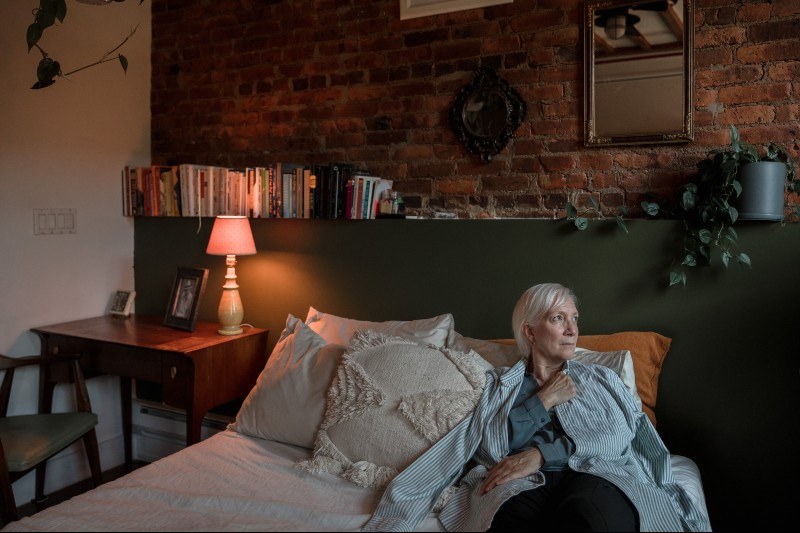Did you know that about 24% of all homes are part of a Homeowners Association (HOA)? That means over 60 million people in the U.S. deal with HOA rules, fees, and regulations while owning their homes.
Being part of an HOA can impact your day-to-day life, and it also impacts your budget. Here’s what you need to know.
HOA Meaning/Purpose of HOA
Homeowners associations are legal entities that oversee a building or neighborhood in order to create a better community for its residents. The exact role of the HOA will differ from community to community - some HOAs maintain local parks and common areas, while others take care of yard maintenance and street cleaning. And most HOAs enforce rules and regulations regarding the upkeep of homes, and their general appearance. The purpose of an HOA is to help maintain and improve property values.
What are HOA fees? These are dues you're required to pay in order to help maintain your building and/or neighborhood.
HOA fees may cover any of the following:
- Clubhouses
- Pools
- Lobbies
- Master insurance policy
- Gates/security guards
- Community parks
- Fitness centers
- Entertainment centers
- Trash removal
- Landscaping
- Parking spaces
- Snow removal
- Electricity and other utilities for common areas
- Fire alarm systems
- Pest control
Average HOA Fees
According to Investopedia, the average HOA fee is about $200 - but this number can vary widely depending on where you live, and what sort of community you’re buying into.
Single-family homes tend to have lower HOA fees, while condo associations often have far higher fees - often around the $500 range. This is because condo and apartment buildings typically offer more amenities - like doormen, swimming pool upkeep, community activities for residents, fitness centers, and more.
HOA fees vary by location. Here are the average HOA fees for several major cities, according to Trulia:
- New York: $498
- Philadelphia: $449
- Charlotte: $218
- Nashville: $194
Are HOA Fees Worth It?
Statistically speaking, most people would say yes: according to the Community Associations Institute, roughly 85% of residents who have an HOA are satisfied with it.
Whether an HOA fee is worth it to you really depends on what you prioritize as a homeowner. In many ways, it’s similar to owning a pool. Someone who never swims and never has pool parties will find a pool annoying to maintain. However, someone who loves swimming will find it to be a great investment.
Retirees often find the most value in HOAs because they are at a point in life where they don’t want to - or even struggle to - do the sort of routine maintenance that is often taken care of by an HOA. There’s no need to call around and find a new snow plowing company every year: the HOA does that for you, and can sometimes negotiate for better rates than an individual.
HOA fees can also be worth it if they maintain your home’s value. University of California at Irvine researchers found that, on average, homes with HOAs sold for 4% more than homes without HOAs.
While HOA fees may seem like a dent in your budget every month, they’re ultimately replacing bills you would’ve had to pay anyway - only separately. Rather than paying the city for recycling, a neighborhood association for shared landscaping, and a membership for gyms, you can just pay one lump sum each month.
Should HOAs Be Illegal?
Since HOAs are optional communities that homebuyers don't need to opt into, there isn't a strong legal basis for getting rid of them. However, it's important to know that HOAs have to follow state laws. For example, in Pennsylvania, HOAs can't prohibit residents from displaying the American flag.
And HOAs are often essential for condo living. Imagine trying to get 200 individual households to collectively staff a front desk, empty trash from common areas, or salt the sidewalk. The results would be chaotic. Most people would rather pay a single monthly fee and never have to worry about the hundreds of small and large tasks the HOA takes care of.
When are HOA Fees Too High?
If you're wondering whether your potential HOA fees are reasonable, the answer depends on how valuable you rate the services they cover - and how the fees compare to other local properties.
If your HOA fee is $600 but that includes trash services, pool usage, snow removal, neighborhood security, and lawn work, you might feel that it's a reasonable price for multiple services you might've paid for out of pocket anyway.
If the typical HOA fee for your city is around $400 and your condo's HOA fee is $1,000, however, you may want to discuss with your Realtor how the HOA fee could potentially impact the home's resale value in the future. If the housing market cools down, buyers may turn a more discerning eye to this line item.
What Happens if You Don’t Pay HOA Fees?
Plenty of people would rather not pay their HOA fees, so they wonder: what exactly happens if I don’t?
Just like your mortgage or property taxes, HOA fees are a required part of maintaining and owning your home. By not paying the monthly fees (as well as any additional fees you might incur from infractions), you risk having a lien placed on your home (which must be resolved before you can sell it) or even foreclosure.
Typically before this happens, though, the HOA will sue you, or send your bill to collections. If the HOA sues you they may be legally able to garnish your wages as payment - similar to how mandated child support works. What the HOA will do first often depends on the extent of your payment delinquency and your state legislation.
HOA Rules
HOAs have a reputation for laying down the law, to put it mildly. Reddit has an entire 140,000+ member community devoted to people who hate HOAs. While horror stories may abound, the reality is that most people have a positive experience with their HOA - or at least they can appreciate the benefits their HOA brings to the table.
The most important thing to consider when moving into a home, condo or apartment with an HOA is whether you feel comfortable abiding by group rules and regulations while living in your own home. It’s worth noting as well that HOA bylaws and regulations are “living” documents that can be amended or changed as situations arise. Many HOA Boards, for example, amended their rules around rentals in order to cut down on residents renting out their homes via Airbnb and other apps. When this happens, even if owners do not agree with the rules, they typically do not have much legal recourse to fight them.
When you break the rules in an HOA, such as parking in the wrong space, you may be fined. According to Cinch, the average fine amount is $119. Similar to not paying for HOA fees, not paying for citations could result in a lien being placed on your home.
Examples of HOA rules include (but are not limited to):
- Architectural controls - you may need permission to paint your home a different color.
- Lawn and holiday decoration restrictions - over-the-top giant inflatable Santas and lawn flamingos may not be allowed.
- Home maintenance standards - you’re expected to fix things like roof leaks and HVAC issues.
- Noise complaint policies - quiet hours may be observed, and loud partying is typically not encouraged.
- Home occupancy limits - trying to fit 10 people into a two bedroom home may not be allowed.
- Parking rules - if you have multiple vehicles, you may not be allowed to park them on the curb. HOAs may also restrict people from parking trailers and RVs in their driveways.
- Pet size and quantity limits - large dogs or multiple dogs may be restricted.
- Short-term rental restrictions - Airbnb is the main culprit here, especially because tourists are more likely to ignore parking restrictions, quiet hours, etc.
Can You Opt Out of an HOA?
In most cases, the answer is no. By moving into a community with an HOA, you’re agreeing to the HOA’s governance - and this is typically noted on the deed and title of your home (in other words, you bought a deed-restricted home). You do not have the right to opt out - which makes sense, ultimately. If the HOA is taking care of community upkeep (like landscaping) and common areas (like swimming pools), then people who opt out would get to reap the benefits without contributing to them.
It is possible for an existing community to abolish their HOA, but it’s an arduous, time-consuming process and typically 80% of its members need to vote to get rid of it. Considering, again, that most people feel satisfied with their HOA, it’s typically very difficult to get the number of votes needed to abolish them.
Most people deal with bad HOAs by either running for the board themselves in order to change the leadership, or by selling their home and moving to a different, non-HOA regulated location.
For Further Reading



